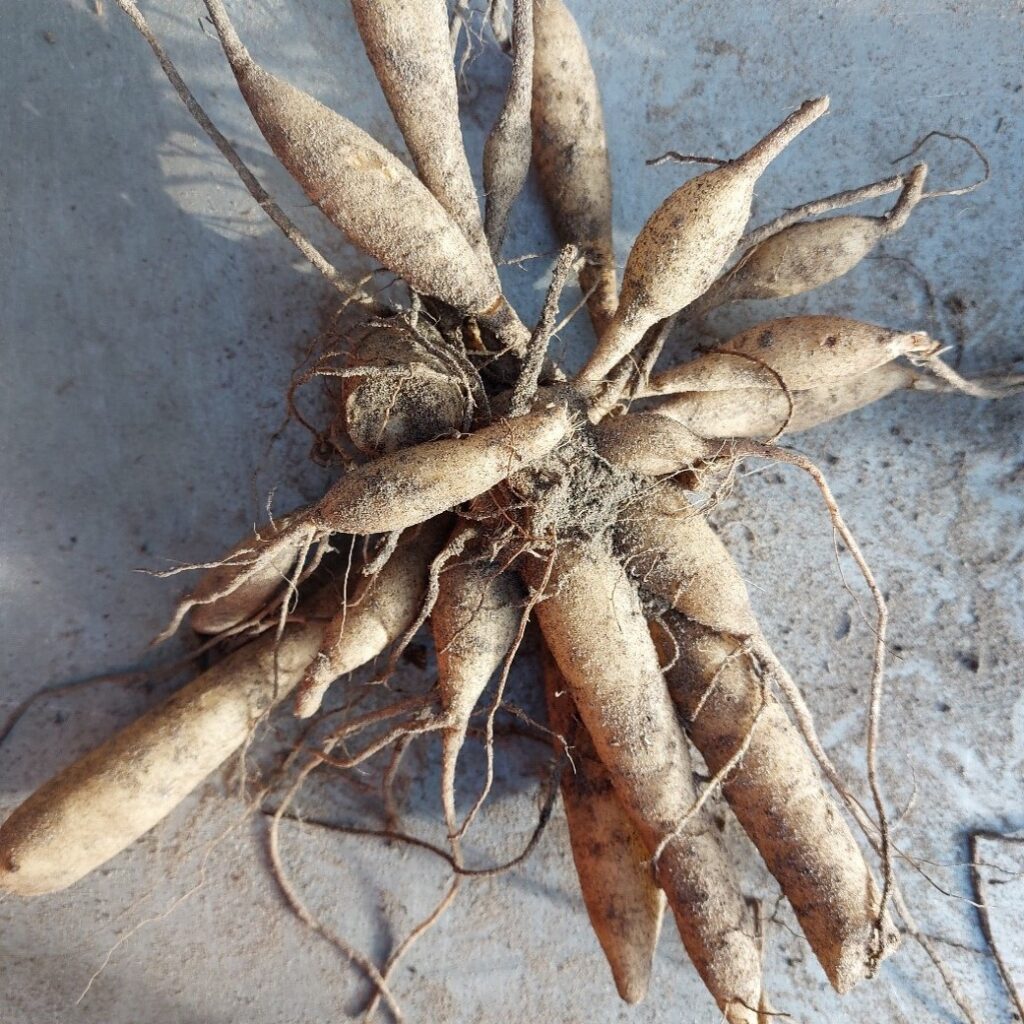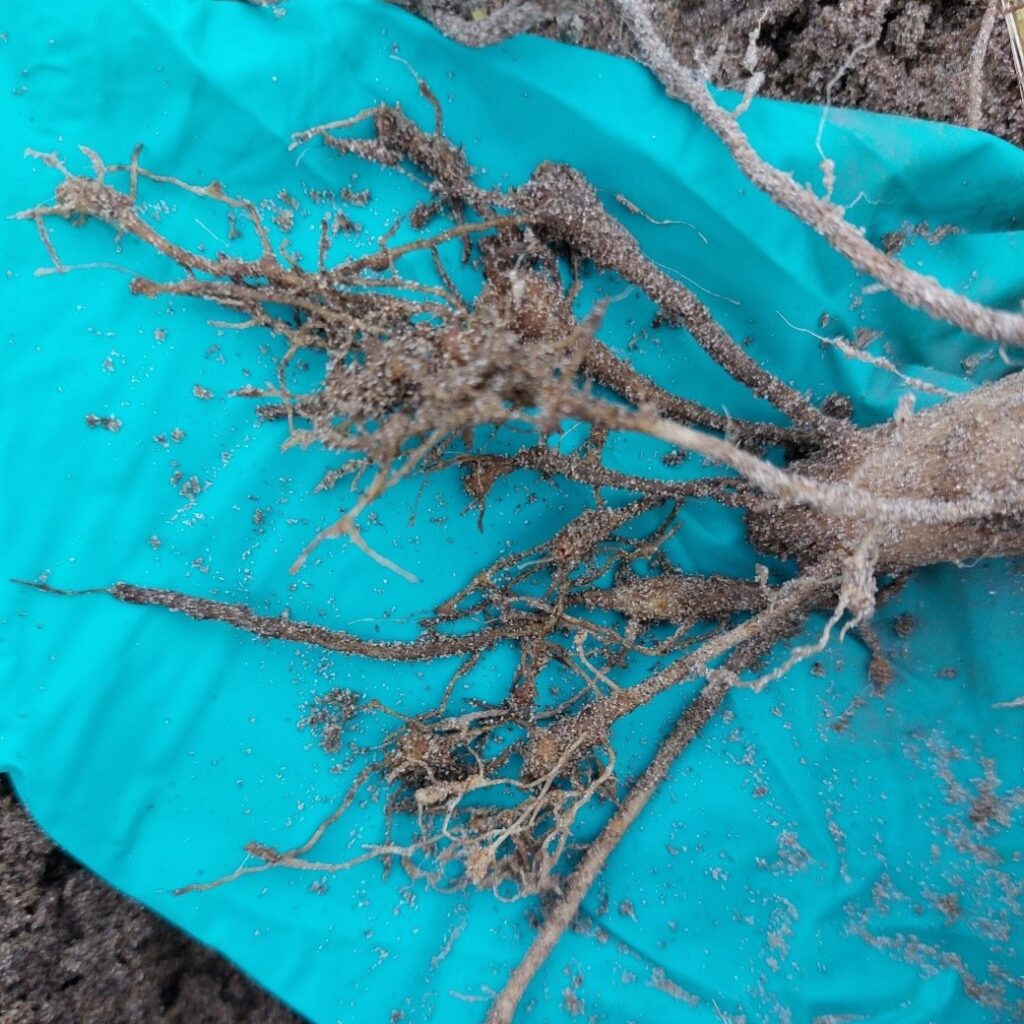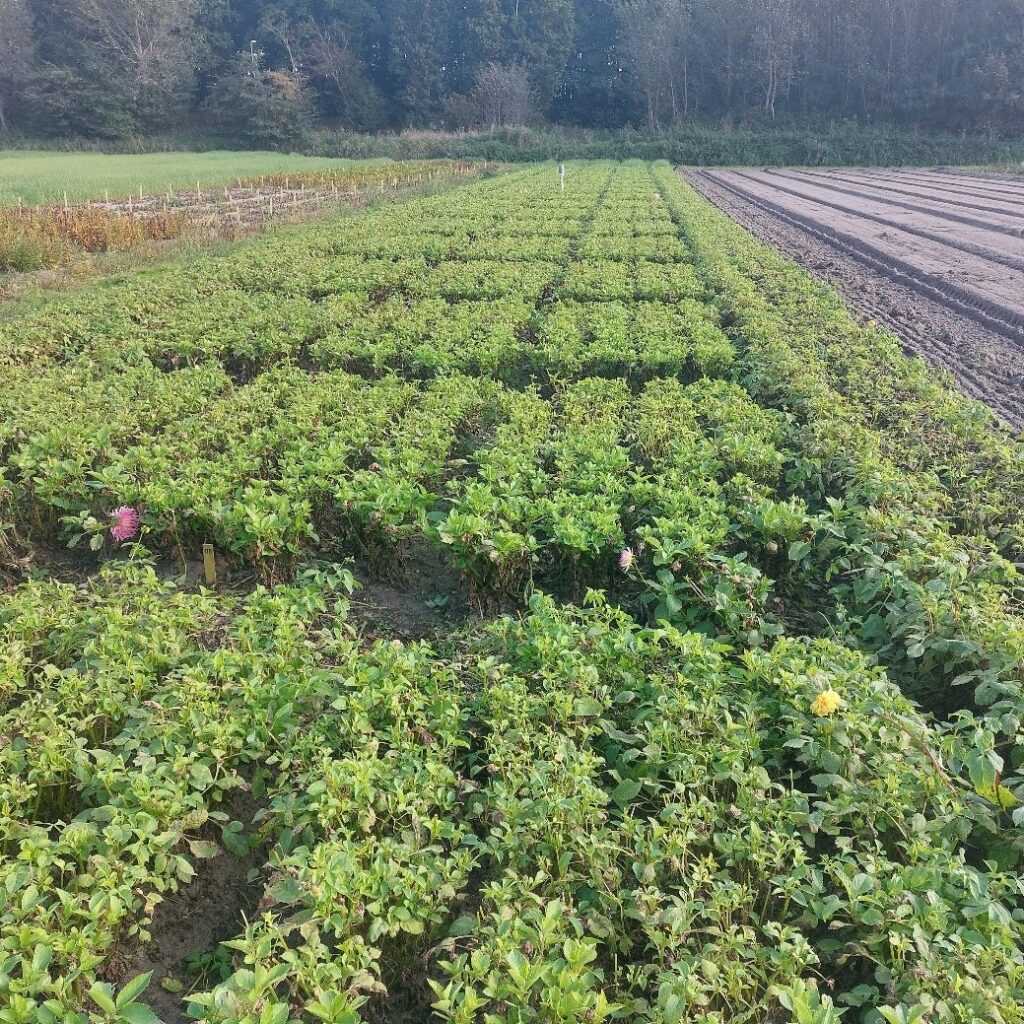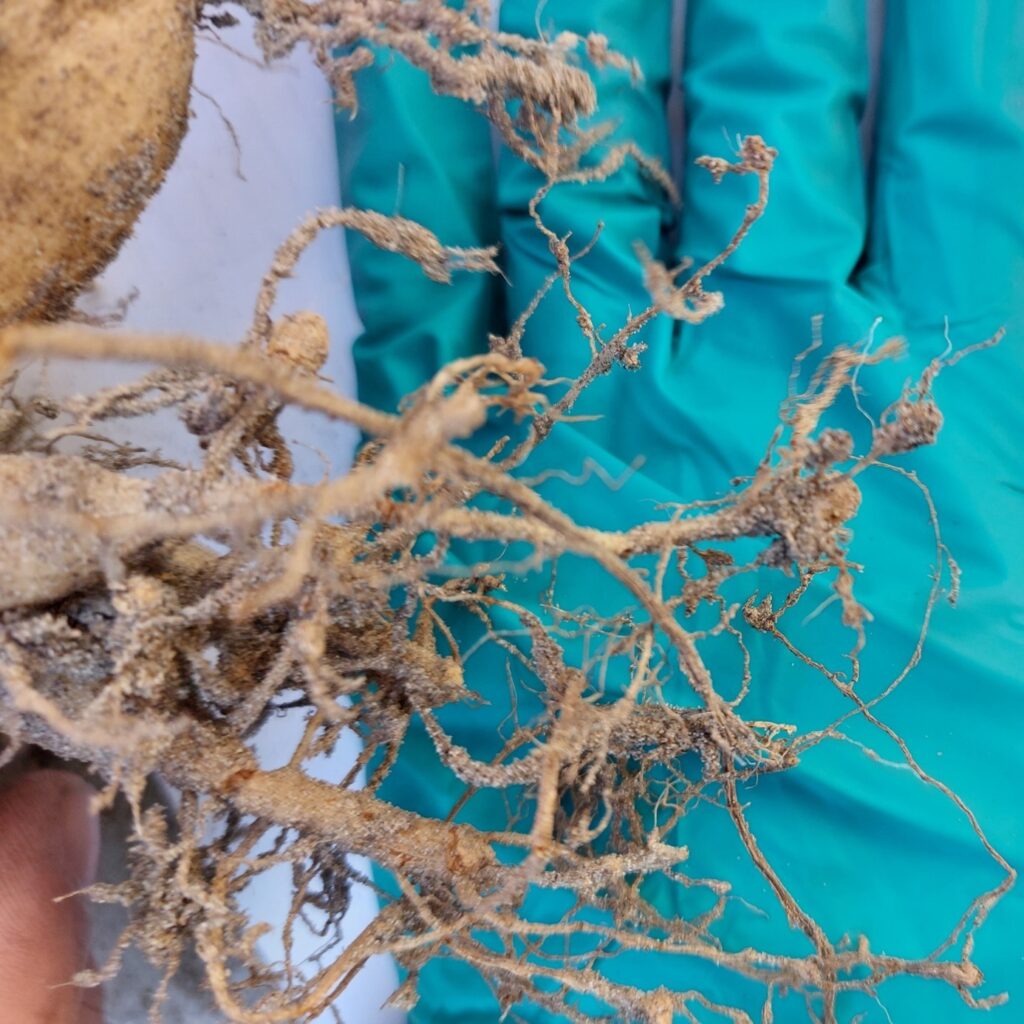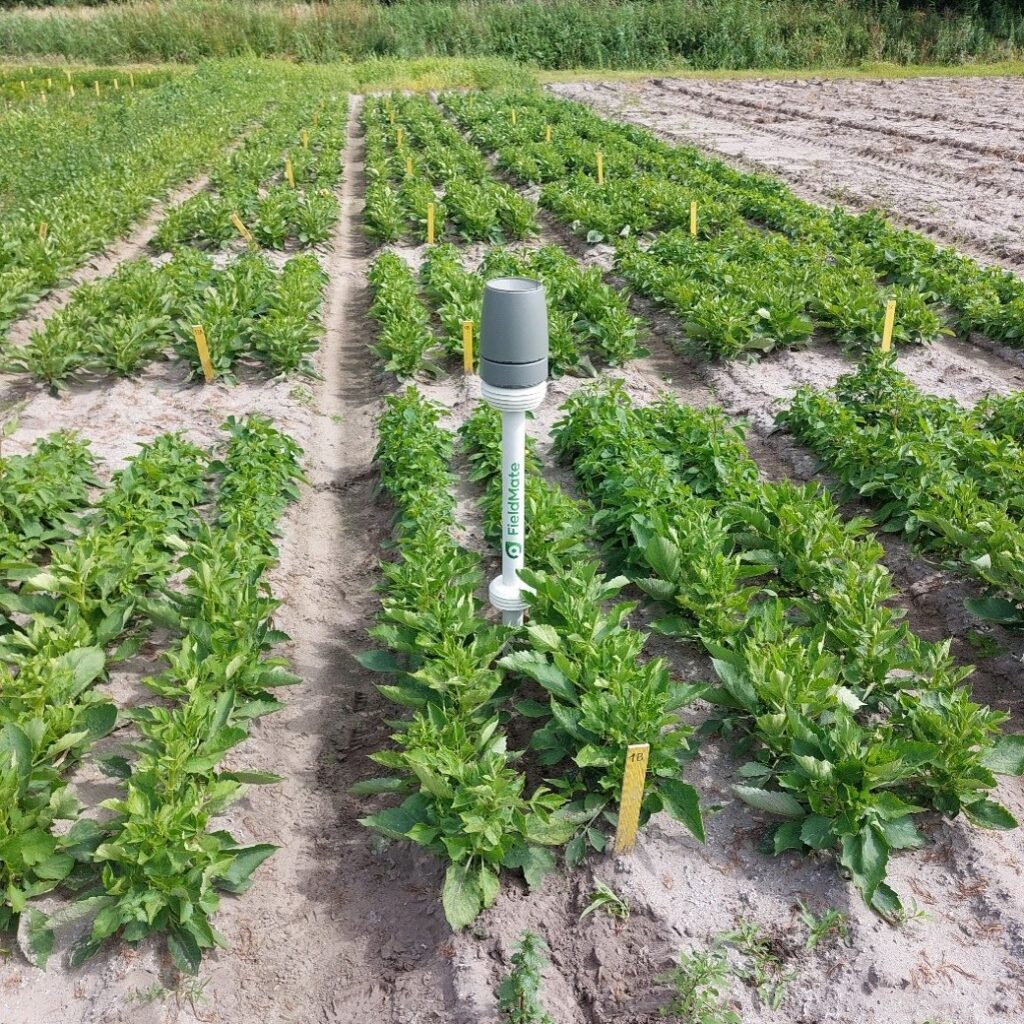Ongoing dahlia research
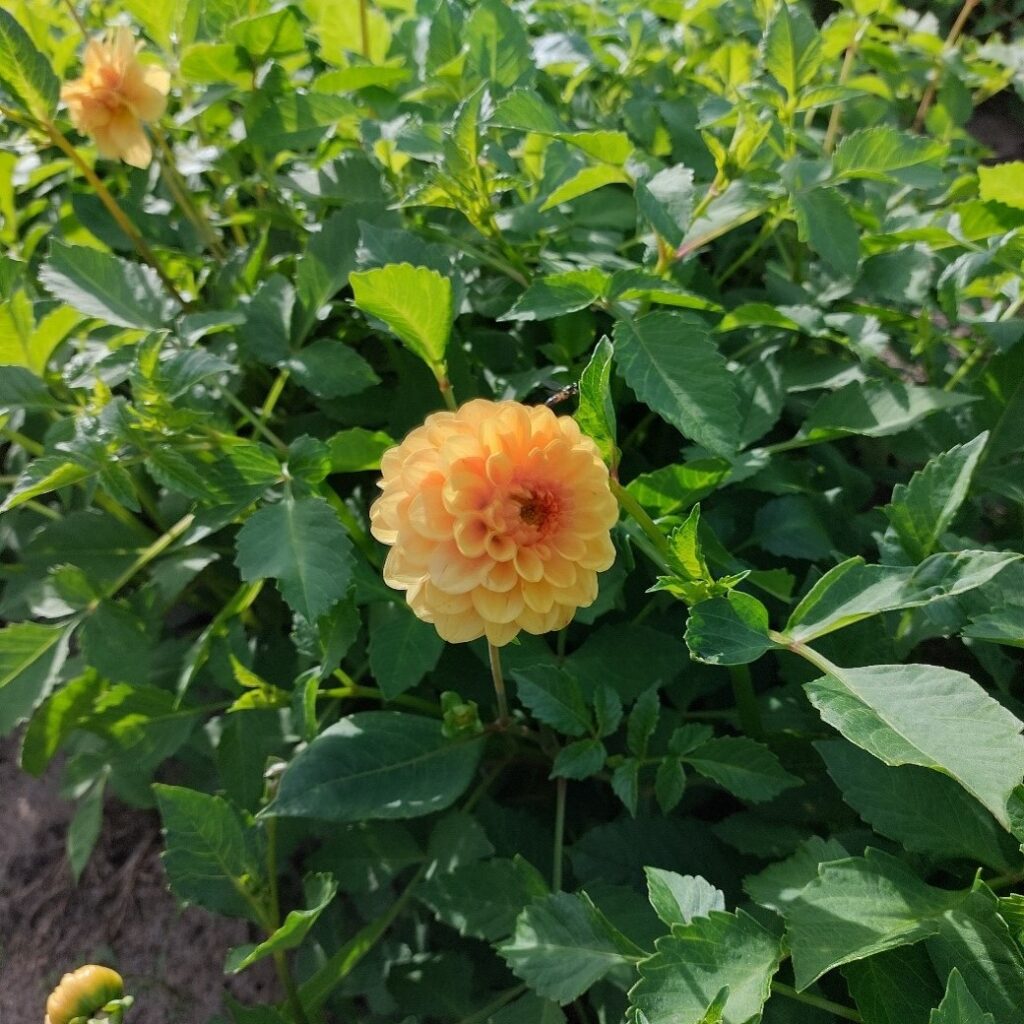
Biostimulants (2018 to 2022)
Delphy’s Flower Bulbs team has been conducting research on biostimulants and plant protection products in the crop dahlia since 2018. The research has focused on the impact of biostimulants and green agents on crop stand, resilience and yield. In 2021, it was investigated whether it is possible to plant with a higher plant density while maintaining a sufficiently high percentage of 1’s when applying different selected biostimulants.
Sustainable control of root knot eel (2022 to 2024)
Dahlia as host plant
Dahlia is often grown in rotation with perennials, so the Northern root-knot nematode (Meloïdogyne hapla) can be a problem for dahlia growers. Zantedeschias can also be affected by this nematode. Root knot nematodes are propagated in the cultivation of Zantedeschia, which affects the subsequent cultivation of dahlia and perennials. Moreover, carrot, a common crop rotation with dahlia, is also a host plant for root knot nematode.
Negative effects of northern root-knot nematode
Northern root-knot nematode has negative effects in the field, such as site-specific growth retardation, weakened and partly rotten root systems, and nodules in thinner roots after lifting. Tubers with visible nodules are rejected for export, with significant financial consequences, especially since a large proportion of dahlias are exported to America. Affected tubers are also unsuitable for propagation by layering. Inundation is one method of controlling root-knot nematodes, but this is costly and makes the plot unavailable during the growing season. Moreover, inundation has insufficient effect during the winter period.
Sustainable control methods
The future of chemical plant protection products is uncertain, posing a potential problem for control of root-knot nematode in dahlia cultivation. This project aims to investigate sustainable treatments to control Northern root-knot nematode. Possible methods include applying a high dose of compost and using the biological agent Charge. The research will determine whether these treatments are effective without negative effects on the crop.
Future prospects
Finding sustainable control methods for Northern root knot nematode can ensure the continuity of dahlia cultivation, especially given the decreasing use of chemical plant protection products. This project aims to find a lasting solution for the future and help the sector reduce dependence on chemical plant protection products.
Collaborative research
In 2022, Delphy conducted research in collaboration with five dahlia growers on sustainable alternatives for the control of Northern root-knot nematode (Meloïdogyne hapla). The study included an untreated control, a chemical control (Velum Prime), and three sustainable treatments (Charge, high-dose compost and products from company X). The Charge and compost treatments proved promising. In 2023, Delphy will continue the research on behalf of the Flower Bulb Research Foundation.
Sustainable thrips control (2023)
Thrips infestation leads to a significant slowdown in plant growth. Usually the lower leaves remain unaffected, but the young leaves often show severe deformities. Currently, we still rely on chemicals to prevent thrips infestation in dahlia. Nevertheless, dahlia growers are aware of the need to look for new, biological control methods with a view to the future. In 2023, several biological agents will be thoroughly tested for their effectiveness in controlling thrips in dahlia. Dahlia growers are determined to find sustainable solutions for thrips control.
Related postings
Wortelknobbelaal, Stichting Bloembollenonderzoek
